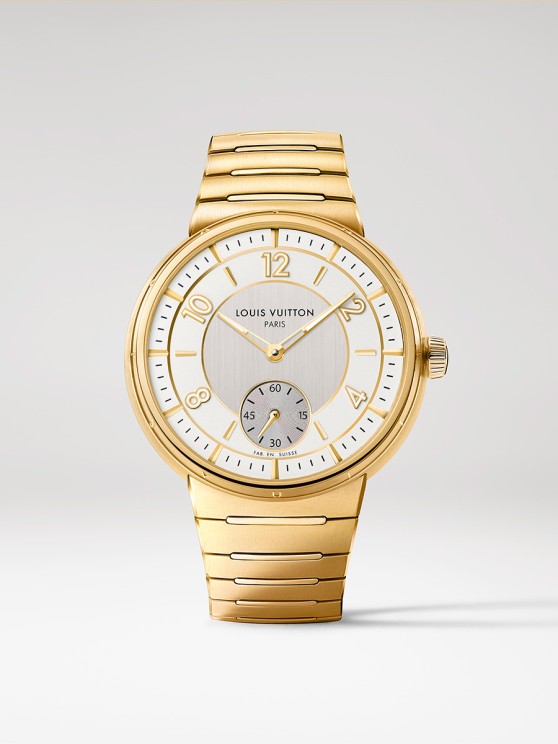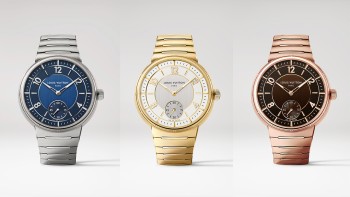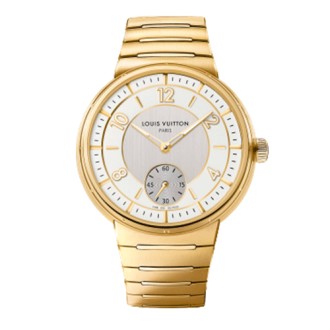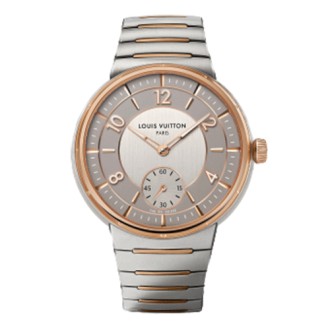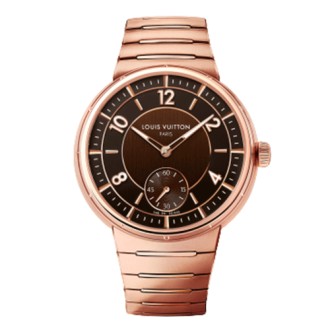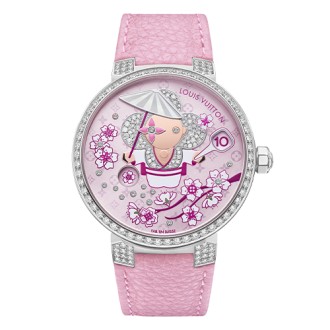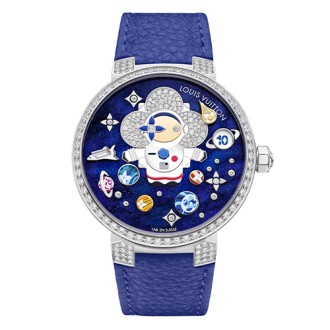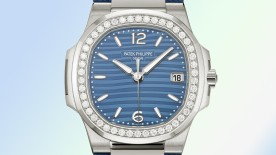The Tambour was not Louis Vuitton's first watch. Not many people know it, but the brand made its horological debut with a quartz model designed by Gae Aulenti. Cased in yellow gold, it combined a retrograde date with moon phases and world time. It wasn't a commercial success, but Vuitton is not the type to throw in the monogrammed towel.
Fourteen years later, in 2002, its horological journey well and truly began with the launch of the Tambour, along with the opening of manufacturing facilities in the Swiss town of La Chaux-de-Fonds, home of the finest watches. The first Tambour sported a 39.5mm steel case, mounted on a leather strap. The automatic movement featured a GMT function and showed the date in an aperture.
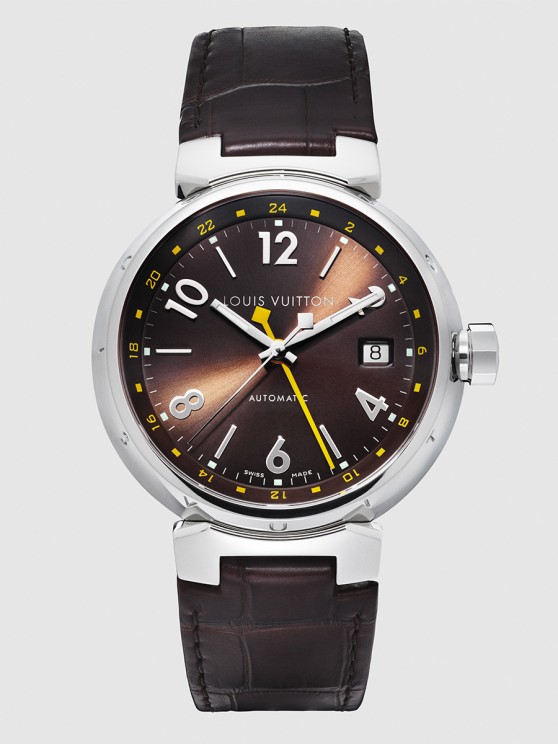
Here was a luxury sports watch that instantly stood out for the unique geometry of its case. Sculpted from a single block of metal, the Tambour's round form recalls that of a drum ("tambour" in French) with its sloping sides, being wider at the base than at the dial. And for good measure, the Louis Vuitton name is spelled out in twelve letters around the middle.
Year after year the Tambour has evolved, combining creativity with innovation and savoir-faire while retaining its identity. Version after version, it has embraced a multitude of complications: a chronograph, a tourbillon, a dive watch, a compass and, of course, the Spin Time whose patented display reinvents jumping hours by replacing numerals with pivoting cubes.
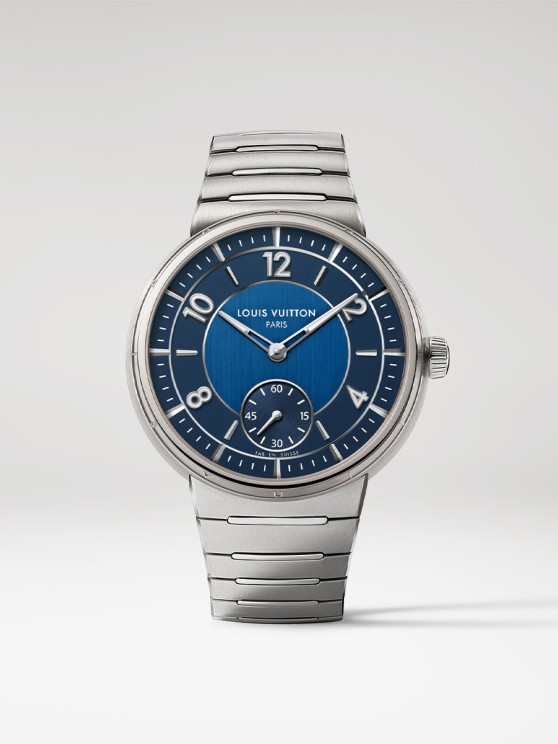
In 2011 Louis Vuitton showed its commitment to haute horlogerie with the acquisition of La Fabrique du Temps in Geneva; a condition for the obtention of the coveted Poinçon de Genève hallmark. Henceforth, there could be no stopping the Tambour, whether in terms of creativity or mechanical complexity.
The exceptional became the rule with a "mysterious" display, a minute repeater, a flying tourbillon and a world timer – not forgetting the nec plus ultra of fine watchmaking: a visually compelling Tambour whose automaton movement drives three dial animations alongside jumping hours, retrograde minutes and a novel power-reserve indicator.
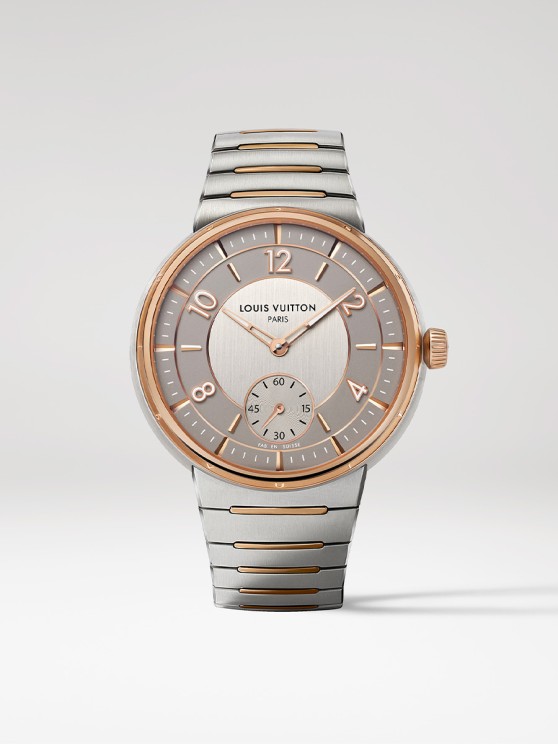
This Tambour Carpe Diem went on to win the Audacity Prize at the 2021 Grand Prix d’Horlogerie de Genève. Meanwhile, the drum-shaped case kept pace with trends, appearing as a Slim version, a Curve version and as gem-set executions for women's models.
It's a fact: the Tambour is a "work in progress", each incarnation adding something fresh to its story. The only time the Tambour has looked back was in 2022 and the release of the Tambour Twenty. This 200-piece limited edition celebrated two decades since the launch of the original Tambour and reprised many of the features that have made it such an icon among watches.
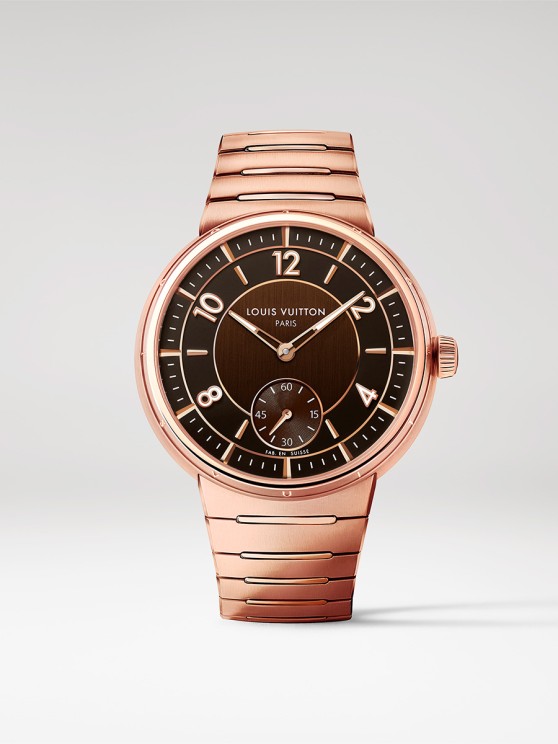
Today, the latest Tambours are sporty, elegant and modern, in yellow gold or rose gold, bi-colour or steel. Automatic movements sit beneath two-tone dials, complete with subsidiary seconds. A mere twenty years have passed since Louis Vuitton burst onto the scene and the Tambour's perfect performance shows how brilliantly the brand has achieved its objective and established its credentials with a watch whose character and identity are in a class of their own.
